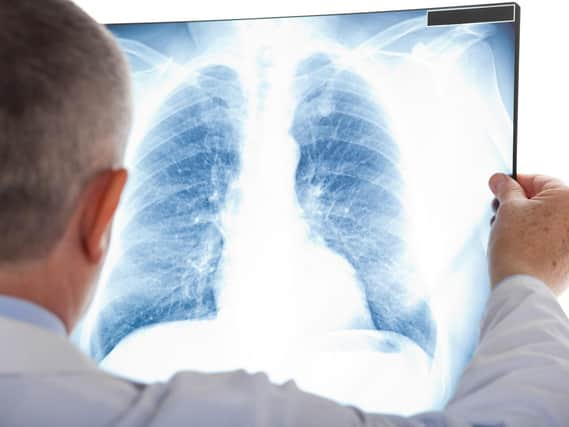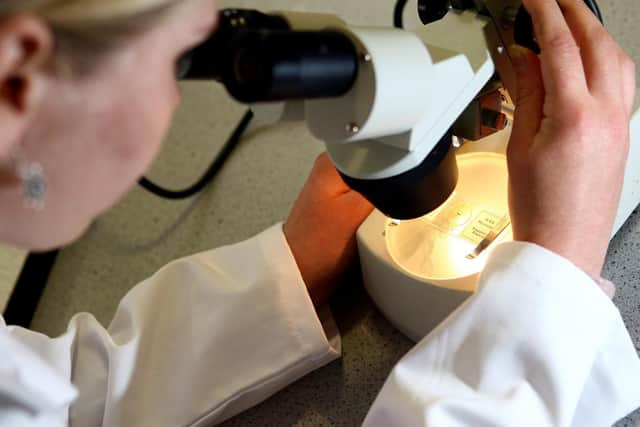Warning over potentially devastating impact of delays on cancer research as projects slowed down in Yorkshire


Half of the charity’s research projects stopped recruiting in March or slowed down and, while they will still happen, it will come slower with the impact being on the thousands of people it could have benefited and with final results additionally delayed.
“Any slow down in that means a slowdown in tackling cancer,” said director of research Stuart Griffiths. “The slower we are to fix that, the more damage is done.
Advertisement
Hide AdAdvertisement
Hide Ad“For me, it’s more about the people, and that’s difficult to put into numbers.”


Yorkshire Cancer Research funded 65 per cent of spaces on cancer trials in Yorkshire last year, with 9,000 people in the region potentially benefiting.
When the pandemic hit, a great number of clinicians rightly volunteered to the front line. Trials were slowed, as organisers tried to find a way to carry out research safely while adapting to stringent measures, although this has been improving since June.
“We’ve learned so much more about the pandemic, more and more of our trials are now starting, and adapting to being Covid safe,” said Mr Griffiths. “People have learned how to do that. Not all our research is back up and running, about 20 projects haven’t started or are slower.”
Advertisement
Hide AdAdvertisement
Hide AdLast month, the Association of Medical Research Charities (AMRC) warned of irreparable damage to UK research, delaying the pace of life saving discoveries.
The body has called on Government to commit to a Life Sciences-Charity Partnership Fund, with clear investment to bridge projected shortfalls in fundraising income. Mr Griffiths, backing the AMRC’s call, said it mattered because of life-saving work.
'Key' to medical breakthroughs and support
“The news of the vaccine gives me great hope that we can get back on top of this,” said Mr Griffiths. “Medical research is ultimately the only way we get ourselves out of any medical problem.”
Cancer charities nationwide have stepped up appeals as they face cash blows in funding lifeline support and research over recent months.
Advertisement
Hide AdAdvertisement
Hide AdWith the majority of traditional events cancelled or postponed, from coffee mornings to cake sales and marathons, there have been warnings over the financial impact.
Macmillan, reliant on the generosity of supporters for 98 per cent of its income, saw its charity raceday at York Racecourse cancelled this year, as well as carol concerts in Leeds, Beverley and Ripon. With all face-to-face fundraising paused, it expects its income to drop by up to 50 per cent this year.
The charity’s Yorkshire appeal has pledged every donation received will stay in the region, to give support to those who need it.
The Teenage Cancer Trust, forming its Christmas appeal, revealed that its income has been slashed by a third - a shortfall of around £6m a year. Due to the pandemic, it warned, support from its specialist nurses and youth workers is needed more than ever.